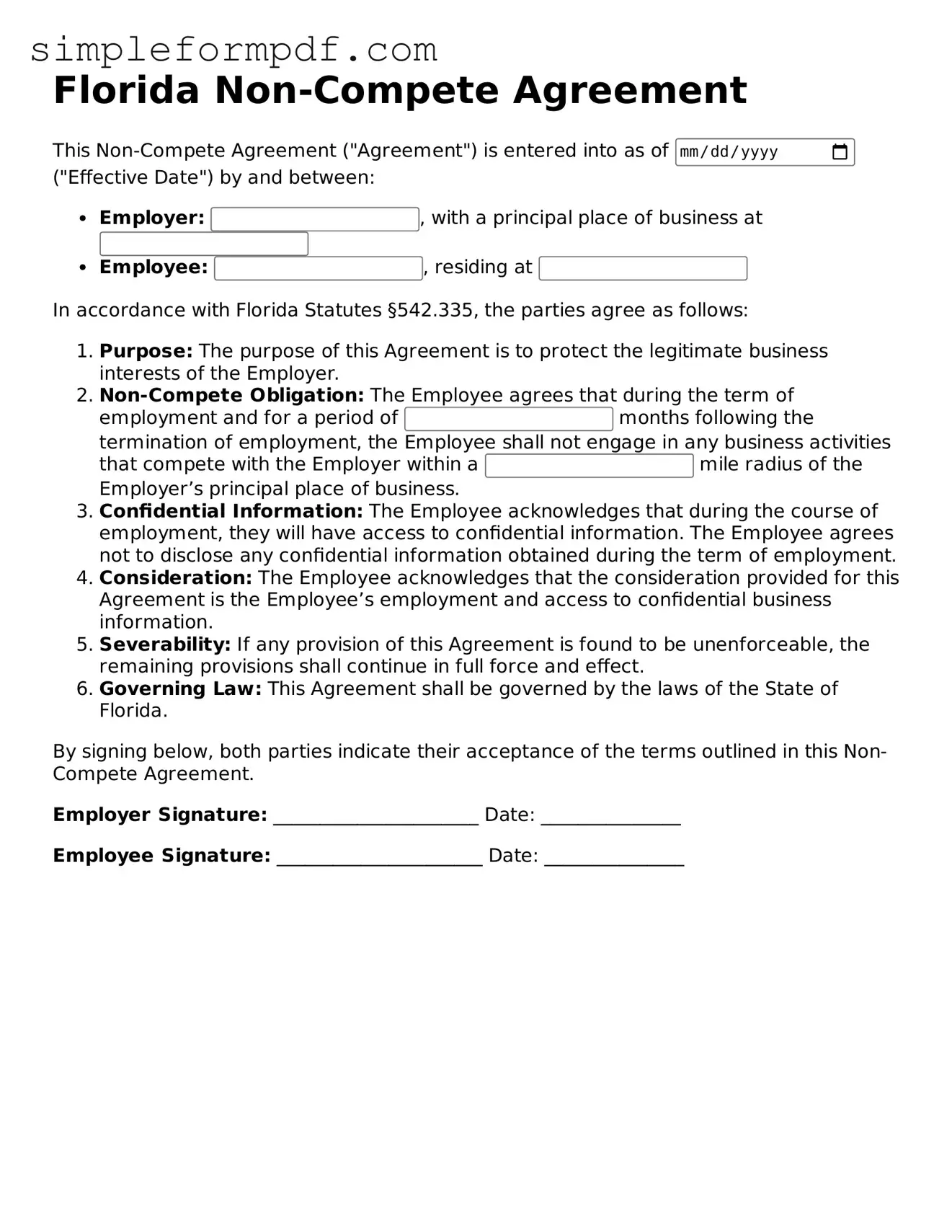Free Non-compete Agreement Form for the State of Florida
A Florida Non-compete Agreement is a legal document designed to restrict an individual's ability to engage in business activities that compete with their employer after leaving a job. This form helps protect a company's trade secrets and competitive advantage by outlining specific limitations on employment and business operations. Understanding the nuances of this agreement is essential for both employers and employees to ensure compliance and safeguard interests.
To get started, fill out the Non-compete Agreement form by clicking the button below.
Launch Editor

Free Non-compete Agreement Form for the State of Florida
Launch Editor
Need instant form completion?
Finish Non-compete Agreement online in just a few minutes.
Launch Editor
or
Download PDF
